The rise of the smartphone has undoubtedly had a major impact on the console market in a variety of ways.
Whether it's eating into sales, delivering whole new genres of games or, more recently, catching up on the hardware front, gamers have been more than happy to embrace the mobile revolution in recent years.
Phones do have one remaining Achilles' heel, however. However well suited some games are to touch-based play, others feel far more at home on a traditional games controller naturally the domain of the console.
In short, if you want to take on titles with a pad in your hand, you're restricted to playing on a games console. Or, at least, you were.
Gaining control
There are already a large variety of wired and wireless controls that will connect to an iOS or Android device. Indeed, Samsung is the latest to make a splash in the scene, unveiling its Game Pad for the Galaxy S4.
But, with support secured and big names now on board, why are physical game controls yet to take off on mobile?
In short, it's because the companies that have an actual say in deploying game pads widescale across their platforms Apple and Google have made no effort to make it a realistic possibility.
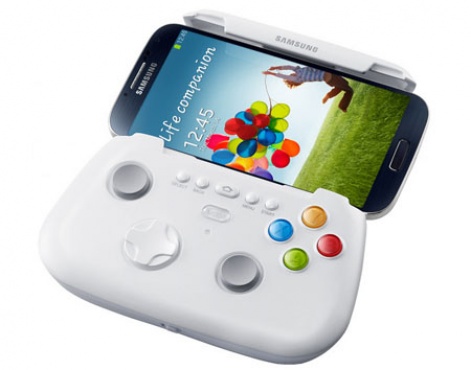
Samsung's Game Pad
Apple doesn't support remote game controllers in any official capacity on iOS. It's also seemingly shown no interest in controllers becoming a standard feature.
Indeed, iCade the Bluetooth-based arcade stick that evolved into a variety of controllers isn't even allowed to be mentioned by name in the descriptions of the apps that support it.
Firms that do build peripherals permitted to be mentioned in app descriptions are forced to limit them to their own apps, such as Gameloft's Duo controller.
Even the Duo suffers limited support amongst Gameloft's own titles - Modern Combat 4 didn't even support the device at launch, despite the Duo already being available.
All in all, the iOS environment is not a welcoming one for controller-based gameplay. No standard has been set, so for those daring enough to attempt to make this space their own, it has been akin to wandering through the Wild West.
On top of that, there's little evidence that those who have served up game pads have enjoyed a financial boon as a result, so where's the incentive?
Setting the standard
Nonetheless, isn't it possible third-parties could hack the system and build their own de facto standard controller?
Theoretically, yes. In fact, iCade is as close to that de facto standard as currently exists, but there's a simple problem: While all the games and controllers are technically compatible with each other, real-world usability is frequently thrown out the window.
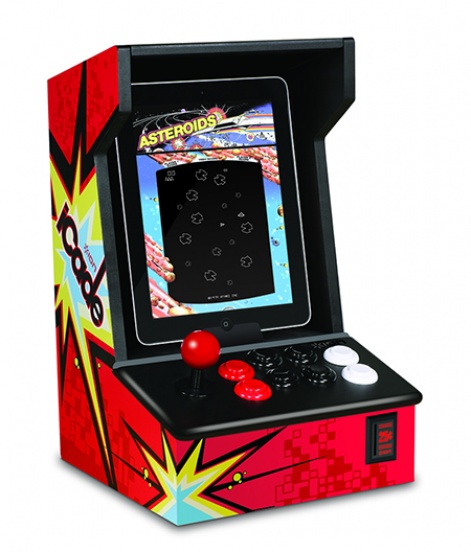
An iCade playing host to an iPad
This is thanks to the fact that every single game has used iCade's rather odd 8 button layout in game.
Official iCade controllers have focused on using buttons on the left as primary action buttons, with those on the right taking the form of secondary controls, typically winding up as triggers on more standard gamepad configurations.
Plenty of titles ignore this approach entirely, however, and use the buttons on the right as primary buttons. Others employ a creative (but awkward) mishmash of the two configurations.
Plus, since the iCade is basically just a bunch of simulated keyboard presses, plenty of hardware manufacturers have built their own iCade-compatible game controllers, and have customised the layout pretty much however they want to.
The end result is double incompatibility: Games that employ their own configurations are designed to work with controllers that have entirely random layouts. The controls are often a mess, with actions mapped to unusual locations that likely confuse gamers en masse.
A matter of support
If developers want to successfully implement controllers within iOS games, then, they all need to pick a standard layout and stick to it as rigorously as possible.
Straying from this approach will only harm the games that deploy their controls in a different way: Developers, you are not a special snowflake, and if you do deviate, then make sure you allow players to change the control figuration to suit their own needs.
Of course, the main question that might have popped into your head while reading this is, if iCade is such a hassle and only reaches a relatively small batch of consumers, then why bother with it?
Consider this: The original Temple Run supported iCade, but none of its now many sequels do, so why should you?
Essentially, adding support for any game controller as things stand isn't going to deliver any added revenue. Rather, developers have to decide to do it because it genuinely adds something to play.
Apple has, so far, made a decision to make it difficult for firms to develop controllers and, as such, support for them is unlikely to be widespread.
The grass isn't greener
The situation is no sweeter on Android, either.
Game pads are technically supported fine on Google's platform,. Plug an Xbox controller in to a device with USB host support and you can even use it to navigate the Android UI, for instance. Bluetooth gamepads are natively supported as well.
Most importantly, support for game pads can also be added to Android titles with relative ease. Don't want to fight the virtual controls of Grand Theft Auto: Vice City? Just set up a controller and it's like playing the game on a console.
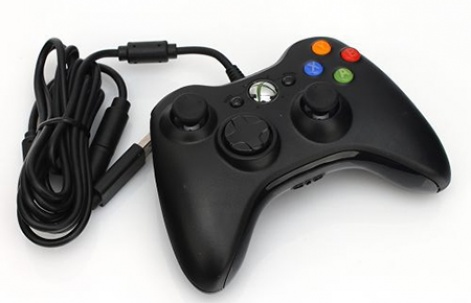
Despite this technical support, however, Google has never made any real effort to publicise the platform's support for controllers.
As such, there's no easy way of knowing if a game will have game pad support when searching for it on Google Play, or indeed any of the other Android app stores out there.
There's no icon or standard term to search for - it's mainly just plug-and-pray.
The risk element means a relatively select band of Android gamers have purchased any controllers, which in turn limits the audience developers can target with games specially designed for game pads.
Slipping through Sony's net
That's not to say some third-parties haven't attempted to make a major splash with controllers on Android, however, with the platform's open nature making the likelihood of success greater than on iOS.
There are a variety of Android 'controllers' out there, but the two that deserve a mention if only because they fall short are Sony's Xperia Play and Nyko Playpad.
To its credit, the Xperia Play solved the issue of people searching for compatible games, but the opportunity to launch a controller for other Android devices enabling Xperia Play games to reach other handsets and, as such, expand their base was never grasped by Sony.
As a result, when the phone fell of the market, so did the games.
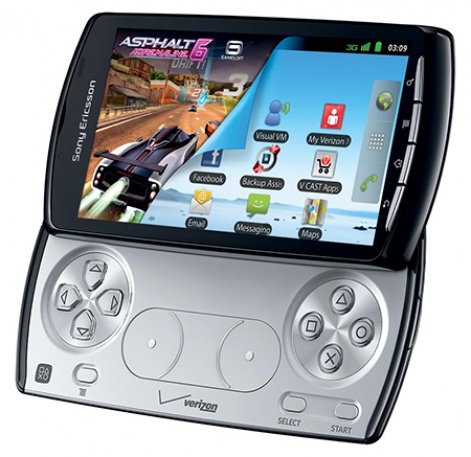
The Bluetooth-based Nyko Playpad also appears to have some of the ingredients needed to crack the controller nut:
It supports native gamepad modes, it has special keyboard and mouse emulation modes for incompatible titles, it supports iCade layouts (which actually is supported by at least one Android game, Chrono & Cash), and even has a mode that can assign keypresses to controller buttons.
Also, thanks to the fact Nyko is a name consumers know, the controller also has retail availability across the US, most notably thanks to the country's largest games retailer Gamestop, though Target and RadioShack also supposedly sell it.
The device's other key selling point is the ability to use the Nyko Playground app to map touch-based events to game pad buttons, which has yet to surface in a working form. Supposedly, GDC will have some advances on that front, and while such technology is possible, it usually requires rooted devices to do so.
Doing it without root may have been a bigger technical hurdle than Nyko anticipated. So while that controller does exist, it's not exactly a recommended option for users, or for developers to bank on it being the key to additional sales due to supporting it.
More to come
Nonetheless, despite its wide availability and technical functionality, even Nyko's accessory has not failed to take off in any meaningful way.
And yet, newcomers are still popping up. MOGA has another Bluetooth controller with retail availability and plans to try and expand its support. Green Throttle is one of multiple companies showing off an Android controller at GDC, purportedly with some big-name titles supporting it.
As stated, even Samsung is getting in to the game, so to speak, with its official Bluetooth controller for the Galaxy S4, and a list of 80 titles that will support it at launch.
However, that's a drop in the bucket compared to the overall list, and as big as the Galaxy S line is, it's still only a fraction of the overall Android market.
Developers are certainly under no obligation to support game pads just because one big manufacturer does. See Xperia Play for details.
If anything, this is where Ouya is set up to have the most success in terms of getting controller support standardised, and that's because if developers want to be on Ouya, they have to support its gamepad.
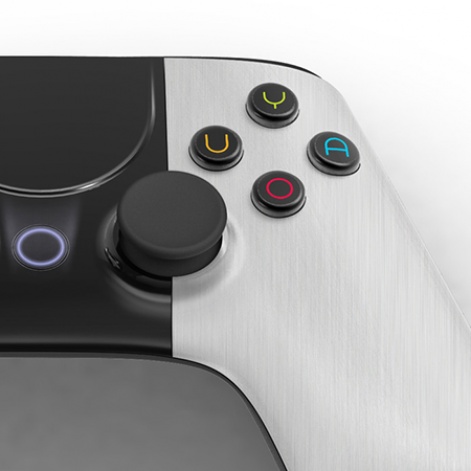
In the end, Ouya could be a catalyst for more controller support if it takes off, if only because plenty of games will have the residual Ouya game pad support.
Console yourself
And as gaming on TV takes off in various forms, the question remains: If a company like Apple was going to make a console, how exactly would players support its games?
You could argue that, as a precursor to any console launch, Apple would be well advised to begin actively supporting and promoting game pad controls, as it would enable developers to seemlessly bring their iPhone games across to the machine.
Indeed, the question of how touchscreen-based games will work on any future Apple console remains high on the agenda. A controller could help square that particular circle.
But is this approach likely? It's hard to forget that mobile platforms helped open up the way for 'non-traditional' interfaces for game controls.
Along with the likes of Wii and DS, they enabled games to reach out to audiences previously put off by the confusing monstrosities that are modern day games controllers. Would Apple really want step back from that revolution?
This is Apple's catch-22, and perhaps the reason why an Apple console isn't forthcoming: To go from the ease of touchscreens back to button bashing seems like a backwards step, yet embracing controls may be the only efficient way for Apple to make a meaningful move on the living room.
The lesson for developers is, when it comes to adding game pad support to games, be skeptical.
There's no reason to think that Apple will ever make them an official part of the iOS gaming experience. Google has shown no interest in making controller support a key feature of Android. And to date, any third-party touting controller support has seen limited success at best, despite widespread availability.
Consider whether it will actually aid your game, or whether in reality the time and attention you end up devoting to pinning down controller support would have been better placed shoring up your gameplay instead.





















